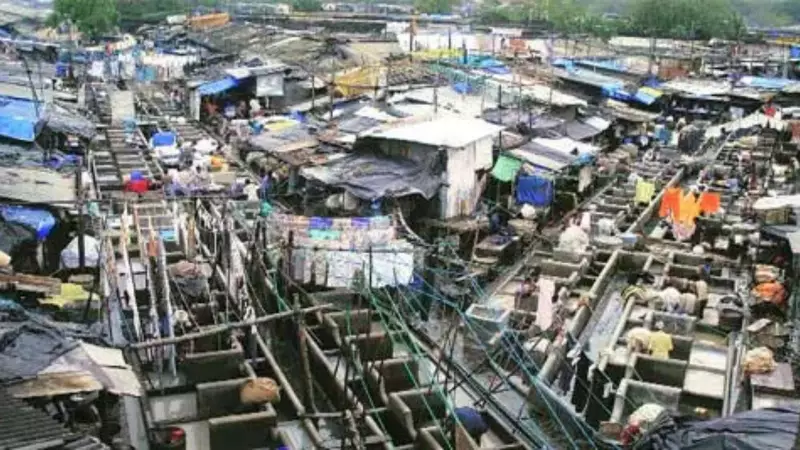
In a significant development that strikes at the heart of Mumbai's urban redevelopment challenges, the Bombay High Court has put the brakes on a proposed slum rehabilitation project at the iconic Dhobi Ghat. The court's ruling comes as a major victory for the city's traditional washermen community, whose livelihood hangs in the balance.
The division bench of Justice Gautam Patel and Justice Kamal Khata delivered a scathing observation, stating that the project proponents appeared to be operating under the assumption that the washermen had "no rights whatsoever" to the land where they have practiced their trade for generations.
Court Questions Alternate Site Viability
The heart of the legal battle revolves around the proposed relocation of the washermen to an alternative site in Mahalaxmi. The court raised serious concerns about the practicality of this arrangement, noting that the new location would be situated beneath a flyover - an environment completely unsuitable for the delicate work of washing and drying clothes.
"You are obstructing the only access to the alternate site," the bench remarked during proceedings, highlighting the fundamental flaws in the rehabilitation plan. The judges pointed out that the proposed site would essentially trap the washermen in an unworkable situation, making their traditional profession impossible to practice.
A Community's Heritage at Stake
Dhobi Ghat represents more than just a commercial laundry facility; it is a living heritage site that has been central to Mumbai's cultural and economic fabric for over a century. The open-air laundry, spanning approximately 10 acres near Mahalaxmi railway station, employs hundreds of families who have maintained this tradition across generations.
The petitioner, Dhobi Kalyan Sanghatana, argued that the redevelopment project would effectively destroy their means of livelihood. Their legal counsel emphasized that the proposed rehabilitation failed to account for the specific requirements of their profession, which demands open spaces, sunlight, and proper drainage systems.
Municipal Corporation Under Scrutiny
The Brihanmumbai Municipal Corporation (BMC) found itself in the legal crosshairs as the court questioned why the civic body was pursuing a project that would displace an established community without providing adequate alternatives. The bench specifically challenged the BMC's approach to urban planning, suggesting it prioritized development over people's fundamental right to livelihood.
The court's interim order prevents any further action on the redevelopment project until proper safeguards are established for the washermen community. This includes conducting a comprehensive assessment of how the project would impact their trade and ensuring that any relocation maintains the functional viability of their profession.
Broader Implications for Urban Development
This case sets an important precedent for similar redevelopment projects across Mumbai and other Indian cities. It reinforces the legal principle that urban development cannot come at the cost of destroying traditional livelihoods and communities. The ruling emphasizes that rehabilitation must be meaningful and practical, not merely theoretical.
The matter has been scheduled for further hearing, giving all parties time to reconsider their positions and propose solutions that balance development needs with community rights. For now, the rhythm of washing and drying at Dhobi Ghat continues, protected by the court's recognition that some traditions are worth preserving in a rapidly changing city.





